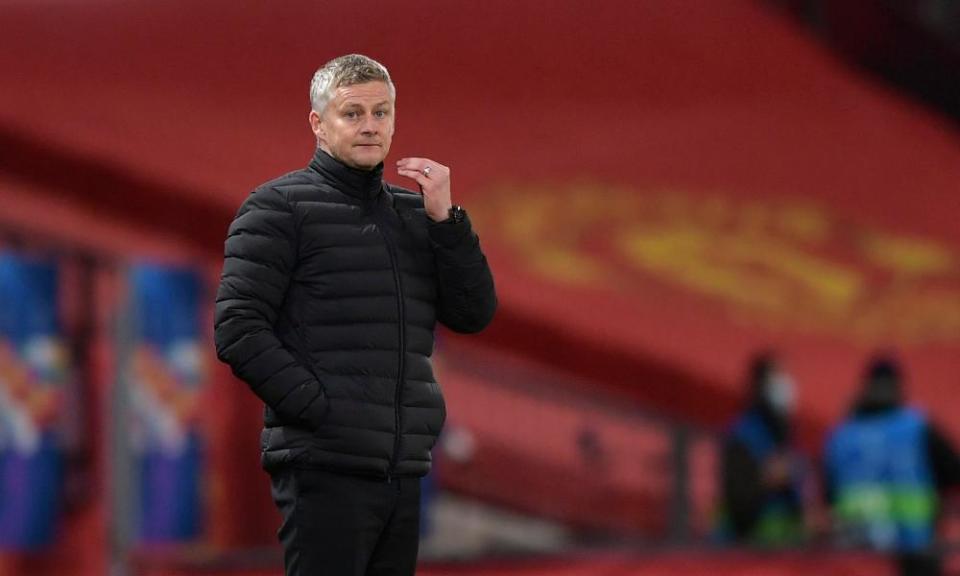Ole Gunnar Solskjær unconcerned at Manchester United's league position

Ole Gunnar Solskjær is philosophical about Manchester United lying in the bottom half of the table as they prepare for Sunday’s visit of Arsenal. His side have played one game fewer than most of their rivals, but the manager already feels this season is going to be markedly different from recent title campaigns.
“It’s going to be tighter and a lot more unpredictable,” he says. “I don’t think you will see anyone running away with it, quite a few teams are going to be in with a chance. It is going to be a long season, with a lot of games, based on a very short rest after the end of last season.
“Every manager is going on about the same thing, the importance of looking after the players. I don’t want to predict how many points will be necessary to win the title this season, but you can see already that records are unlikely to be broken.”
Related: Nobby Stiles obituary
United have been excellent in Europe and not quite as impressive at home in the Premier League, though Solskjær is the sort of manager who can take positives from two league wins from five games. “Last season we started really poorly, we had two wins from our first nine matches,” he says. “We still finished all right, but it’s better if you can pick up more points in the first few weeks of the season.
“You are not going to win the title in your first eight or nine games, but it is important to make sure you haven’t lost it. Hopefully we can pick up another couple of results before the international break that will move us up the table.”
Solskjær has been credited with successful tactical variation this season, something that most certainly was not happening a year ago, playing with a midfield diamond in the 5-0 thrashing of RB Leipzig, for example, a formation that disguised his side’s lack of traditional wingers.
Related: Arsenal have specialised in failure at Old Trafford for decades
Modest as usual, he blames the lack of spectators for an increased focus on what managers are attempting to do on the pitch this season.
“It’s a completely different game without the fans,” he says. “Playing in empty stadiums takes all the passion and excitement out of the game, and when players are no longer feeding off the buzz of the crowd and doing what their instinct tells them in the heat of the moment, tactics come more into it because you can see how each side is being set up. In normal circumstances players react to the crowd, whatever their manager tells them to do. At the moment that is not happening as much.
“We have more options now than we had a year ago, we’ve added quality to the squad. I’m happy with the signings we have made, even if I can’t play them all at the same time.
“Some players walk into a team and look as if they belong straight away, others take a little more time to gel, but ultimately what you need to do is find a balance. You can’t just pick your best seven forwards, however much you might want to. You have to find a system that works and that might change from game to game.”

